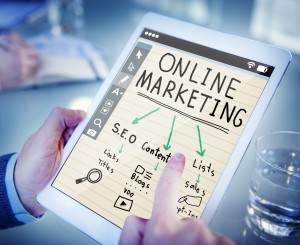Building an Effective Digital Marketing Strategy

Image Source: Pixabay
Our growing attachment to technology and daily use of the internet continues to influence almost every part of the way a business is run. Marketing, specifically, has evolved tremendously. For example, relying solely on word-of-mouth marketing to boost brand awareness and keep customers rolling in is a thing of the past. And so is a strategy that consists exclusively of traditional marketing.
Digital marketing is becoming one of (if not the most) popular methods of marketing for businesses and non-profit organizations. Marketers are leveraging the fact that most people engage with the internet, a tech tool, or other digital platforms daily. The ability to reach a wider audience and its cost-effectiveness are just the beginning of a list of benefits associated with digital marketing.
Building an effective digital marketing strategy starts with understanding how digital marketing differs from physical marketing. So, let’s explore this comparison first below.
What’s the Difference Between Digital and Physical Marketing?
The main difference between digital and physical marketing is where the strategies are conducted. Physical or traditional marketing is any marketing done offline—for example, advertising in print, radio, television, direct mail, phone, and billboards. Digital marketing, on the other hand, is any marketing conducted online, like social media ads, email marketing, and search engine marketing.
It’s important to note that the best marketing strategy for your business depends on your goals and your customers (both current and prospective). And that usually means using a combination of both digital and traditional marketing tactics for the best chance at connecting with consumers and converting them to loyal customers.
Now that we’ve established the difference between digital and physical marketing, the question becomes: is the investment in building a robust digital marketing strategy worth it if you’ve found success with physical marketing?
Is a Digital Marketing Strategy Worth It?
The short answer is yes. Digital marketing allows you not just to reach a broader target audience but connect with them in real-time and at lower cost.
Furthermore, digital marketing can help you focus on growth, whether in sales, name recognition, customer retention, or internal teams. For example, you can use social media to establish your business as one of the top experts in your industry and engage with potential and current customers through comments, direct messages, live streaming, and story features every day. You can craft engaging, visually striking content for your website to continue your efforts to connect with your audience and provide a seamless user experience to aid the purchasing process. And you can stay in touch with your customers through email marketing to continue to build a lasting relationship with them.
Ultimately, developing a solid digital marketing strategy is worth the effort because there are many ways to move forward with it. The following technological tools can help you streamline your efforts.
Three Tools to Help You Streamline Your Digital Marketing Efforts
The success of your digital marketing strategy is highly dependent on the tools you use to complete critical tasks and carry out specific processes. Here are a few must-have tools to set you up for digital marketing success.
Content management system
Your customers are likely to spend their time online on multiple platforms. So, you want to ensure you can provide them a consistent content experience on each of the platforms they’re engaged on the most. A system that helps you deliver the right content at the right time to your target audience on multiple digital channels is the way to go.
For example, with a headless content management system, you can create content one time and distribute it effectively to all of your digital channels. These systems offer flexibility, encourage content customization, and make it easy to re-purpose content and get your content out to your audience faster.
In addition to creating and organizing your digital marketing content, you need tools that will help you monitor that content’s performance.
Data analytics tools
One of the keys to a successful digital marketing strategy is knowing what’s working and shifting away from what’s not. This is where data analytics tools come in. Your data analytics tools can collect vast sets of data on the performance of your digital content and give you insights into how to improve your strategy overall.
Data analytics tools can also help you gather data on your target audience. With the right metrics, you can learn a lot about their online behavior and leverage that information to ensure their continued happiness with your business.
And finally, since social media is most likely a major part of your digital marketing strategy, you must have tools in place explicitly dedicated to your efforts on these platforms. And that brings us to our last section.
Social media tools
If it isn’t yet, social media should be a significant part of your digital marketing strategy. Because there are so many platforms with their respective features, users, and so forth, it’s best to employ tools that help you navigate the vast world of social media.
Be sure to look into tools that help you:
- Schedule your content and post it automatically to your social media pages.
- Identify who is talking about your business and industry on each platform.
- Create and manage social media ads.
- Automatically respond to comments, @mentions, and direct messages.
All in all, there are so many marketing opportunities on social media platforms. So, ensuring you have dedicated tools in place makes it so you can take advantage of as many of them as possible.
Conclusion
Building an effective digital marketing strategy is worth the time and effort it takes to garner positive results. Companies that are finding the most success with digital marketing have the right tools to streamline their efforts. So, start with a solid content management system, data analytics tools, and social media tools to ensure you’re on the path to digital marketing success.
Comments are closed.




